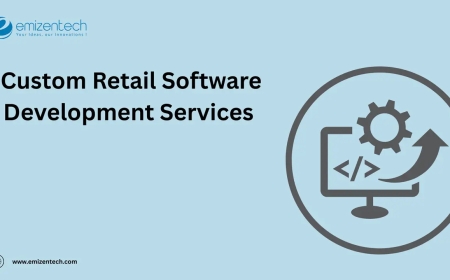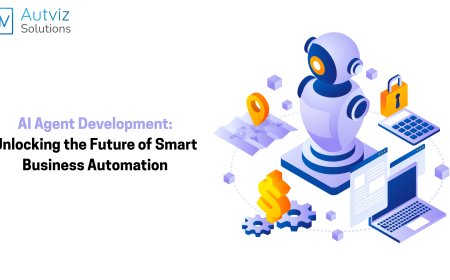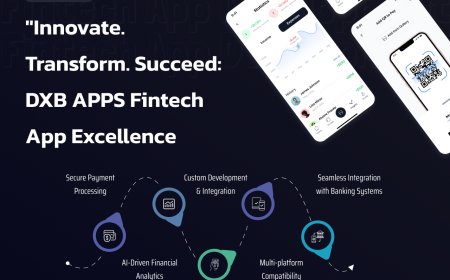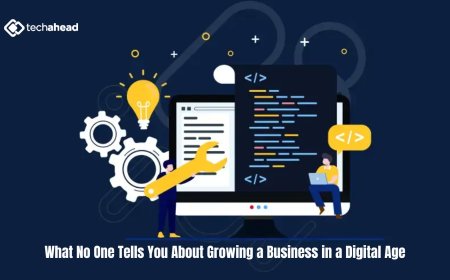Why Every Agribusiness Should Invest in Smart Farming Technology
In this article, we will explore why every agribusiness should invest in smart agriculture solutions and how partnering with a smart agriculture solution company can provide significant benefits.

The agricultural industry, which feeds the global population, is undergoing a transformation driven by technology. In 2023, the global smart agriculture market size was valued at $15.3 billion, and it is projected to grow at a compound annual growth rate (CAGR) of 14.4% from 2023 to 2030. This rapid growth can be attributed to the increasing demand for food production, growing concerns about sustainability, and the need to address labor shortages in rural areas.
At the heart of this transformation lies smart farming technologya key driver of efficiency, sustainability, and productivity in agriculture. This technology combines sensors, data analytics, automation, and IoT (Internet of Things) devices to monitor, manage, and optimize farming operations. It offers agribusinesses opportunities to maximize yield, minimize resource use, and improve overall operational efficiency.
What is Smart Farming Technology?
Smart farming refers to the use of technology, data, and digital tools to optimize agricultural practices. It involves the integration of sensors, automation systems, machine learning, and AI to make farming more efficient and sustainable. Key components of smart farming include:
-
Precision Agriculture: Using data-driven insights to apply inputs like water, fertilizer, and pesticides only where and when they are needed.
-
IoT-enabled Devices: Sensors and devices that gather real-time data from the farm, such as soil moisture, temperature, and crop health.
-
Drones: Aerial imagery and data collection for crop health monitoring and field inspections.
-
Automation: Machines that perform tasks like planting, weeding, and harvesting with minimal human intervention.
By utilizing these technologies, farmers can make better decisions, reduce waste, and optimize the use of resources, ultimately improving productivity and sustainability.
The Importance of Smart Farming for Agribusinesses
Agribusinesses face several challenges, including fluctuating weather conditions, increasing global demand for food, and the pressure to adopt sustainable practices. Smart agriculture solutions address these challenges by improving efficiency and enabling more informed decision-making. Below are some of the key reasons why every agribusiness should invest in smart farming technology.
1. Increased Yield and Productivity
One of the most significant benefits of smart agriculture solutions is the ability to optimize crop yields. Technologies such as precision agriculture and remote sensing allow farmers to monitor crops with unprecedented accuracy.
-
Precision Planting: Smart farming tools can analyze soil conditions and adjust planting depth, spacing, and seed quantity based on real-time data.
-
Data-Driven Decisions: By using sensors and data analytics, agribusinesses can monitor soil health, track growth patterns, and identify issues early, resulting in higher yields and fewer crop losses.
Real-World Example:
In a study by John Deere, farmers who adopted precision farming techniques saw up to a 25% increase in crop yield and a 15% reduction in input costs.
2. Resource Efficiency and Sustainability
As the global population grows, the demand for food increases, putting pressure on natural resources. Smart farming technology allows agribusinesses to use resources like water, fertilizer, and pesticides more efficiently, leading to significant cost savings and sustainability improvements.
-
Water Management: Sensors that track soil moisture levels help farmers irrigate only when necessary, reducing water wastage.
-
Fertilizer and Pesticide Optimization: By applying fertilizers and pesticides precisely where needed, farmers can reduce chemical usage, minimizing environmental impact.
Real-World Example:
A smart agriculture solution company like Climate Corporation has developed a system that helps farmers optimize fertilizer usage. By applying fertilizers only where needed, farmers can reduce usage by 10-15% while still maintaining high yields.
3. Reduced Operational Costs
The automation of farming processes through smart farming technology can significantly reduce labor costs. Tasks like planting, irrigation, and harvesting can be performed by automated systems, reducing the need for manual labor.
-
Automated Irrigation: Smart irrigation systems can adjust water levels based on real-time weather data, ensuring crops receive the right amount of water.
-
Robotics in Harvesting: Robotics systems can harvest crops faster and more efficiently than human laborers, reducing labor costs and minimizing crop damage.
Real-World Example:
A company like Octinion, which focuses on robotic harvesting, has developed a strawberry-picking robot that can pick strawberries with high precision, reducing labor costs by as much as 30%.
4. Improved Crop Health and Disease Management
Monitoring the health of crops is vital for maximizing yield and reducing losses. Smart agriculture solutions enable real-time monitoring of crop health using technologies like drones and satellite imaging.
-
Disease Detection: Smart sensors and imaging technologies can detect diseases, pests, or nutrient deficiencies early, enabling farmers to take timely action.
-
Precision Spraying: Drones and automated systems can apply pesticides and fungicides only to affected areas, reducing the use of chemicals and minimizing environmental harm.
Real-World Example:
PrecisionHawk, a leading drone company, uses drones to collect aerial data, allowing farmers to spot issues like disease, pests, and irrigation problems early. This leads to a 20% reduction in crop loss due to disease and pest damage.
5. Better Decision-Making Through Data Analytics
Smart agriculture solutions generate vast amounts of data, which can be analyzed to provide actionable insights. Agribusinesses can leverage machine learning algorithms and AI to process this data and make informed decisions regarding planting schedules, crop selection, and resource management.
-
Weather Forecasting: By integrating weather data with farm data, businesses can better predict weather patterns and plan operations accordingly.
-
Predictive Analytics: By analyzing historical data, AI can predict crop yields, disease outbreaks, and even the best times for planting or harvesting.
Real-World Example:
A company like IBMs Watson Decision Platform for Agriculture uses AI-driven analytics to combine weather, soil, and market data. This helps farmers make better decisions, leading to higher profits and lower costs.
How to Choose the Right Smart Agriculture Solution Company
Investing in smart agriculture solutions is a significant decision for any agribusiness, and choosing the right smart agriculture solution company is critical. Here are a few factors to consider when making your choice:
1. Expertise and Experience
Look for a company that has experience in providing smart farming solutions to businesses in your specific industry. A company with a proven track record in delivering successful projects will be better equipped to understand your unique needs and challenges.
-
Industry Experience: Does the company have experience with crops similar to yours or operations of a similar size?
-
Technological Capabilities: Does the company offer the technologies that align with your needs, such as drone services, IoT sensors, or AI-based analytics?
2. Customization and Scalability
Each farm or agribusiness has its unique set of challenges, so its essential to choose a smart agriculture solution company that offers customized solutions. Ensure that the technology can scale as your operations grow.
-
Customization: Does the company tailor solutions based on your farms specific needs, such as crop type, land size, and local climate?
-
Scalability: Will the solution grow with your business, accommodating more fields or expanded operations?
3. Integration with Existing Systems
Your chosen smart agriculture solution should integrate seamlessly with your existing tools, whether its your farm management software, irrigation systems, or machinery. Compatibility ensures smoother operations and avoids unnecessary disruptions.
-
Data Integration: Does the company offer solutions that integrate with your existing farm management systems?
-
Ease of Use: Is the system user-friendly, or does it require specialized training for your team to operate?
4. Support and Training
Smart farming technology is sophisticated, so support and training are crucial to ensuring its successful implementation and long-term effectiveness. Choose a company that offers comprehensive training for your team and responsive customer support.
-
Training Programs: Does the company provide in-depth training to help your staff get up to speed with the technology?
-
Customer Support: What kind of ongoing support do they offer in case of issues or questions?
Conclusion
Investing in smart farming technology is no longer a luxuryits becoming a necessity for agribusinesses looking to stay competitive, sustainable, and profitable in an increasingly challenging environment. Smart agriculture solutions can help improve crop yield, reduce resource waste, optimize operational costs, and enhance decision-making through data-driven insights.
As the demand for food continues to rise, agribusinesses that adopt smart farming technology will be better equipped to meet this demand while also protecting the environment and reducing costs. Partnering with a smart agriculture solution company can provide the expertise, technology, and support needed to implement these solutions successfully.
Whether you are a large agribusiness or a smaller farm, the right smart farming tools can help you transform your operations and position your business for long-term success.








































